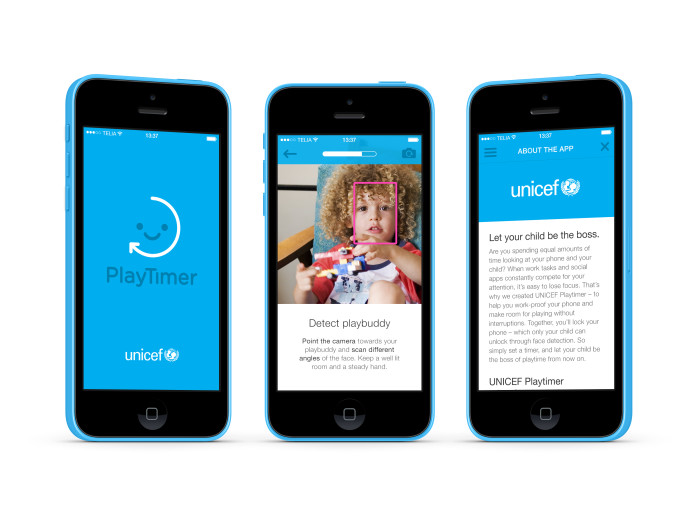
A new survey, on behalf of UNICEF Sweden, shows that two out of three parents (66%) feel forced to be available via their mobiles outside of working hours. Nearly half of all Swedish parents (43%) say that being available on their mobile decreases the time they otherwise would have spent with their children. According to ?The Children?s Rights and Business Principles?, it is the employers duty to provide decent working conditions for parents and caregivers.
? Companies can affect children in many ways. In some countries children are forced to work; and in mobile connected countries like Sweden, it appears that children do not get enough time with their parents because parents are spending more time with their mobiles. To increase awareness about ?The Children?s Rights and Business Principles?, we have developed an app that enables children to spend quality time with their parents, without any interruption from work, says Lotta Linden, Head of Corporate Partnerships at UNICEF Sweden.
It?s important to raise awareness about this issue. 8 out of 10 parents (81 %) in Sweden with children between the ages of 0-12yrs are checking work emails and receiving job related calls outside office hours.
? The line between work and leisure has become more diffuse. We work even when we are spending time with our children. It stands clear that employers need to take a closer look at how bringing work home affects children, says Lotta Linden at UNICEF Sweden
With the app UNICEF PlayTimer, UNICEF enables parents to manage their own leisure time without interruptions from work. With the app, your child becomes in control of the mobile while the parent and the child are spending time together. The child gets to work-proof their parent?s mobile phone in a playful way. If the phone is touched whilst in locked mode, an alarm is activated. The only way to deactivate the alarm is by verifying that you are indeed spending time with your child by using face recognition.
UNICEF?s expectation for this campaign is that Swedish and international employers encourage their employees to download the app UNICEF PlayTimer and at the same time pay attention to ?The Children?s Rights and Business Principles? throughout their business.
About ?The Children?s Rights and Business Principles?
The principles were developed by ?UNICEF Save the Children and the UN Global Compact? to guide companies about the need to respect and support children?s rights.
The principles are a further development of the ten principles by UN Global Compact.
?The Children?s Rights and Business Principles? clearly state that it is the employer?s responsibility to make sure that working conditions have no negative effects on children. This does not only concern issues such as child labour, but also work related issues in high-income countries. According to ?The Children?s Rights and Business Principles?, employers have an obligation to provide decent working conditions for employees with children.






